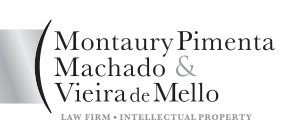Introduction: The variety of information and communication characteristic of the digital world has significantly changed consumption behaviour. Within this context, ads and marketing strategies have become increasingly elaborate and aggressive in order to capture consumers' attention.
In an increasingly hostile market, companies have taken an innovative approach to advertising, seeking to ensure consumer loyalty. This has included comparing their products and services with those of competitors in an attempt to convince consumers that theirs are the best.
However, is this type of advertising, which is (in theory) harmful to competitors whose products and services are shown as being inferior, allowed?
Brazilian framework
This practice (ie, comparative advertising) is accepted by both the Brazilian courts and the National Council of Advertising Self-Regulation (CONAR), as long as certain parameters are respected.
CONAR, a civil society body founded in the 1970s which regulates the ethical standards applicable to advertising and publicity, has already expressed its understanding that comparative advertising is acceptable, as long as it meets certain conditions – for example, the aim of informing consumers. In other words, the comparison must be based on objective and verifiable criteria.
Comparative advertising is not accepted when, for example, it aims to diminish the value of a competitor's product or service or its brand. This is in contrast to jurisdictions such as the Unites States, where this type of advertising – namely, ridiculing a competitor – is widely used and accepted.
Although CONAR and the judiciary have expressed their views on the authorising requirements for comparative advertising, many cases still arise in which the legality and regularity of this type of advertising is questioned. This is because the comparative criteria is often subject to a certain level of subjectivity, in addition to the fact that it is more difficult to ascertain whether a competitor's brand value has been affected in a specific case.
Automobile industry
One industry in which this debate often arises is the highly competitive automobile industry, where this type of advertising is common and the technical information relating to a product usually guides consumer choice.
When launching a new product in this segment, if an ad is not limited to pure emotional appeal, it often contains information regarding the performance of the vehicle. In such cases, the vehicle is often compared with others in the same category which are present in the market. For example, comparisons with respect to power, engine, transmission technology, among other things, are common. However, it is also not uncommon for these ads to be questioned before CONAR.
Toyota versus General Motors
One such case concerned General Motors' 2016 advertising campaign for its new Desafio S10 pick-up truck, which comprised three ads.
The first ad, entitled 'Drag Race', featured a competition between the S10 and a "Japanese competitor", which referred to Toyota's vehicle in the same category. In the ad, General Motors' vehicle had a large advantage over the Toyota vehicle. The other ads, 'Proof of Goal' and 'Proof of Hell', also indicated that General Motors' vehicle was superior to that of its competitor; it was stated in the ads that the S10 pick-up was the "strongest in the market".
Troubled by such advertising, Toyota filed a complaint with CONAR alleging that General Motors' campaign was unethical as it:
- 'disqualified' Toyota, thus diminishing its brand image; and
- Up to 150 PPH requests per International Patent Classification section are permitted each year.
- contained false information regarding the segment ranking and test methodology shown in the ads.
General Motors argued that the information presented in the ads was true and could be verified, and that the campaign therefore complied with the CONAR Code. The reporting counsellor who judged the case understood the regularity of the advertising campaign and shelved the complaint.
General Motors versus Fiat Chrysler
In another case, which had a different outcome, Fiat Chrysler encouraged consumers to go in person to dealerships where they could carry out the so-called 'Argo challenge', which consisted of test driving its competitors' vehicles (ie, the Chevrolet Onyx, the Hyundai HB20 and the Fiat Argo).
In February 2018 General Motors, which manufactured the Chevrolet Onyx, filed a complaint with CONAR claiming that the vehicles made available at dealerships to carry out the challenge were unequal in terms of mileage and the year of manufacture, which had resulted in unfair comparisons. General Motors also complained about comparative information in Fiat's printed advertising material, which it considered to be incongruous and capable of misleading consumers. The complaint was accepted by the reporting adviser, who suspended the advertising campaign, including the distribution of the remaining printed material at the points of sale.
Toyota and Dentsu versus Caoa Chery
More recently, Caoa Chery's 2019 ad for its Tiggo 7 vehicle stated in general terms that the vehicle was superior to that of its competitors as it was "more economical, more comfortable, faster and much more equipped". The ad, which was allegedly published in the specialist magazine QUATRO RODAS, also claimed that this vehicle had "beaten the competition in several categories", making reference to its competitors.
However, in a complaint submitted by Toyota and Dentsu, it was argued that the reports which had given rise to the comparisons did not ratify them. Further, the comparisons made in the ad were subjective and lacked precision. As such, the advertising was deemed to be irregular and was suspended by CONAR.
Comment
Despite being widely accepted by the market, in Brazil, comparative advertising must focus on the veracity of the information, as well as the objective criteria to be used for such a comparison.
Source: International Law Office - Acesse o artigo aqui | Baixe o artigo em PDF




